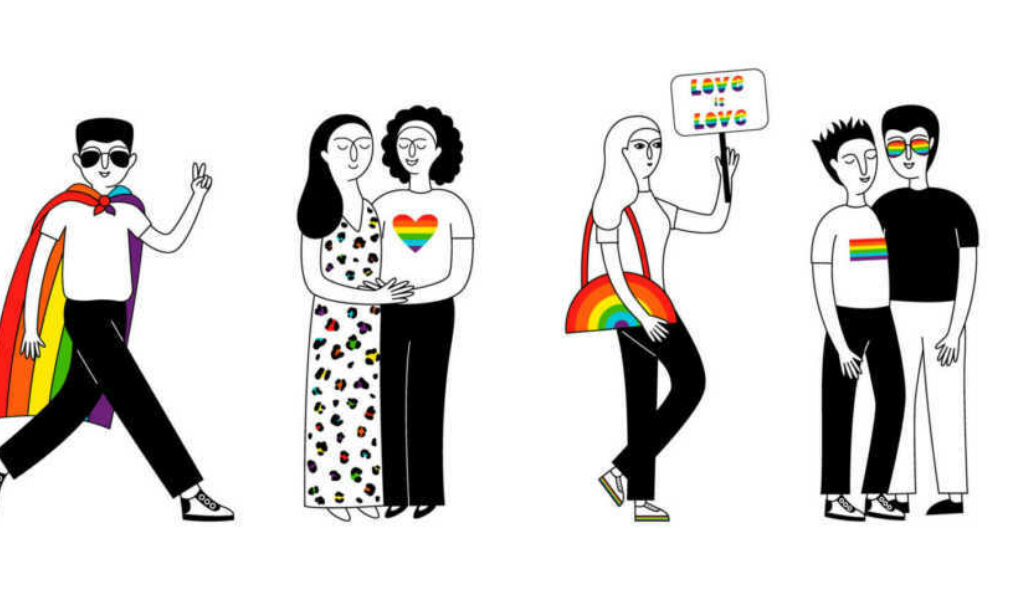Is the Respect for Marriage Act Enough to Protect Our Marriages? Michigan LGBTQ+ Advocates Speak Out
Bill a positive step, but marriage equality still at risk

Local LGBTQ+ advocates have mixed reactions to the passage of the Respect for Marriage Act (RFMA)
in the U.S. Senate last week by a 61-36 vote.On one hand, advocates are grateful Congress has acted on the marriage equality issue. Yet, at the same time, there is still fear about what a conservative majority on the Supreme Court could do to undermine it.
“This seems less a step in the right direction and more a ‘batten down the hatches and protect our gains [move],’” said Dave Garcia, executive director of Affirmations LGBTQ+ community center in Ferndale. “While it’s certainly better than, say, the Defense of Marriage Act (DOMA), this law falls woefully short of what the queer community deserves and demands.”
Marriage equality has been the law of the land since a much more liberal U.S. Supreme Court ruled on the matter in 2015. But with the recent overturning of Roe v. Wade by the court’s now conservative majority, Justice Clarence Thomas has suggested that marriage equality might be next on the chopping block.
In response to that threat, Congress devised the RFMA to repeal the Defense of Marriage Act, which was signed into law by President Bill Clinton in 1996 and limited the definition of marriage to one woman and one man. It also ensured that states that prohibited same-sex marriage would not be forced to recognize those marriages performed in other states.
“This means the federal government has to recognize legal same-sex marriages and accord them the federal benefits associated with marriage,” said ACLU of Michigan LGBT Project Staff Attorney Jay Kaplan. “This is essentially a codification of what the U.S. Supreme Court did in 2013 in the case of Windsor v. U.S., when it struck down as unconstitutional the section of the DOMA which denied federal recognition of same-sex marriages.”
What the RFMA doesn’t (and couldn’t) do is prevent the U.S. Supreme Court from possibly overturning the Obergefell v. Hodges decision, which found, in 2015, that the right of same-sex couples to marry and have the benefits of marriage is a constitutional right, said Kaplan, who again pointed to Thomas’ threat. “Justice Thomas called on the Court to revisit the Obergefell decision, among other decisions that he believed to be based on a flawed constitutional right to privacy analysis.”
If that were to happen, same-sex marriages would become illegal in Michigan.
“It would be up to either the Michigan legislature or Michigan voters to codify the right of same-sex couples to marry in our state,” said Erin Knott, executive director of Equality Michigan and co-chair of the #HateWontWin campaign. Currently, there is a 1996 law on the books that denies same-sex couples the right to marry and denies recognition of same-sex marriages performed in other states, along with a 2004 amendment to the state’s constitution that does the same thing.
“It needs to be repealed,” said Knott.
Kaplan agreed.
“It could be repealed by the legislature,” he said, adding that an amendment would need to be passed by 2/3 of the legislature and then voted on by the electorate.
Kaplan also pointed out that while the RFMA extends only limited protections to marriage equality, he is “not certain that the U.S. Congress could have done more on this issue.”
If they passed a law requiring states to recognize same-sex marriages in other states, some states would probably challenge that provision, he said. “So, in sum, this is a positive thing … but there is still more preventative work to be done in the state of Michigan in the event that the U.S. Supreme Court conservative majority would overturn marriage equality.”
Knott said much of the same.
“What happened this week is a big deal,” she said. “Twelve Republicans in the U.S. Senate supported the right of same-sex couples to have their marriages respected by the federal government. This is significant.”
But to Garcia, it’s still not enough.
“Our marriages and love should never be up for debate in the first place,” he said. “No state should have the right to deny us the same protections afforded to the straight community.”










